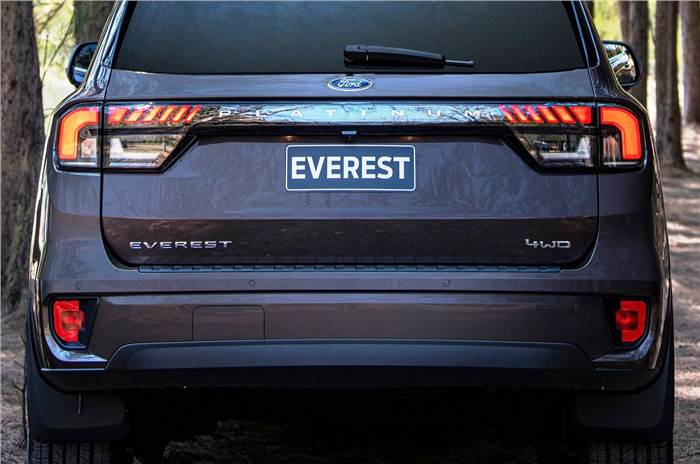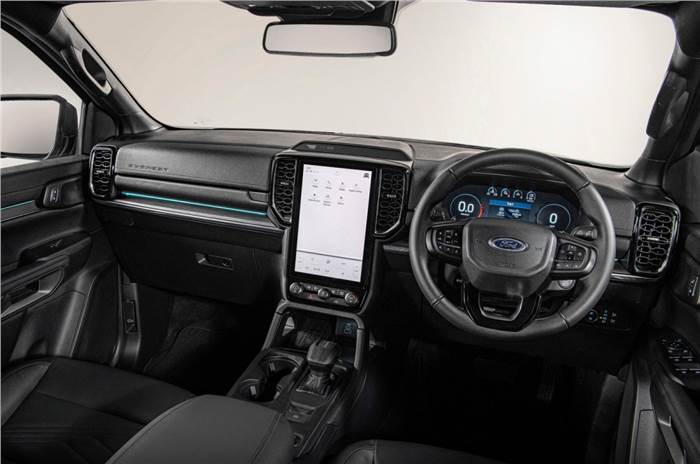Ford likely to import a limited number of Everests; locally assembly to begin in 2025 in existing Chennai plant.
Ford India is bringing back the Endeavour to India and it’s likely to be badged the Everest – the American brand uses the nameplate in Australia and Thailand. Ford India could not use the Everest name here earlier as it was trademarked to another entity, but Ford is understood to have secured the rights for the Everest name now and plans to relaunch it under this moniker.
- Ford Everest nameplate will unify it with global idenity
- India production of Everest could start late 2025 or 2026
- Options abroad include two 2.0-litre diesels and a 3.0-litre V6 diesel
Ford Everest for India
A unified global name can reinforce brand image, but for Ford India, switching to the original Everest name will also help make its re-introduction simpler, as the company doesn’t have to invest in developing and localising fresh badges, logos and nameplates, which, given the small volumes planned in India, would have been costly and complicated.

It’s not clear when Ford will start production of the Everest in India as that will hinge on the company’s EV strategy, which is still being formulated. “We cannot build the Everest in isolation as it has to fit into one integral production plan with other products too,” said a company source. This could delay the manufacturing of the Everest in India to late 2025 or even 2026, but to bridge the gap, Ford is considering bringing in a small number of imports as a way to return to the market faster.
Ford Everest interior, design, powertrain
The spy photos near Chennai and the design patent filed by Ford in India, show us that the three-row, ladder frame SUV gets a boxy front-end with a large grille, a horizontal bar in its middle and new Matrix LED headlights with C-shaped DRLs at the front. The overall design seems to be more squared-off than the Endeavour, and the upright rear-end and inverted L-shaped LED tail-lights add to that feeling.
The Everest’s interior, at least those on sale in international markets, also seems vertically oriented with the 12-inch touchscreen (10.1-inch on lower trims) running Ford’s latest SYNC infotainment software. Lower variants also come with an 8.0-inch digital instrument cluster, while the higher ones get a 12.4-inch unit. Considering it’s a CBU, Ford may elect to bring the ADAS tech that is available with the Everest abroad, along with standard safety kit that includes nine airbags.

While the India-spec Everest’s powertrain is yet to be confirmed, Ford offers two 2.0-litre diesels – a single turbo and a twin-turbo version – and a 3.0-litre V6 diesel overseas. Gearbox options include a 6-speed manual and a 10-speed automatic, depending on the engine, and two-wheel and four-wheel drive versions are also on offer in select markets.
When it arrives, the Ford Everest will directly rival the Toyota Fortuner and MG Gloster, and other seven-seat SUVs like the Skoda Kodiaq.
Also see:
Ford discusses future India plans with Tamil Nadu government

